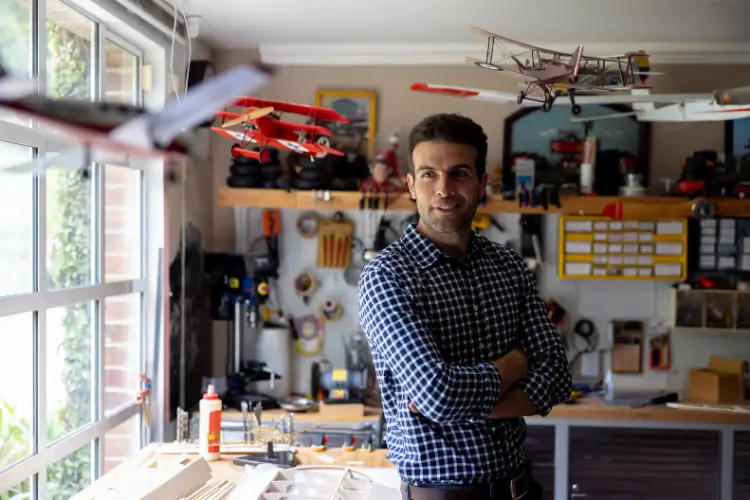Coffee is not just a drink! It is a global phenomenon that connects people, traditions, and culture in unique, flavorful ways. It is the magic potion that kick-starts people’s mornings, fuels their afternoons, and offers comfort during those late-night work or study sessions.
But have you ever wondered how coffee is perceived and consumed in different parts of the world? This post offers a peek into how different cultures celebrate this beloved beverage!
The origins of coffee culture
Let’s begin with a little history!
The story of coffee begins in Ethiopia, where, according to legend, a goat herder named Kaldi discovered the coffee bean. He noticed how energetic his goats became after munching on the bright red cherries- hence the discovery of coffee!
From Ethiopia, coffee made its way to the Middle East and then into Europe. By the 17th century, coffeehouses began popping up in cities like London and Paris. People would gather to sip coffee, discuss ideas, and exchange news. This laid the groundwork for the modern coffee culture.
Coffee culture in the United States
Coffee culture really took off in the U.S. in the 19th century.
Initially, coffee was a morning staple and mostly served with breakfast. However, the late 20th century saw a coffee revolution as the rise of specialty coffee shops changed the game. Americans were no longer content with just a cup of Joe and began to indulge in the art of coffee brewing.
Today, in different cities across the country, coffee shops have become social hubs. They are where people meet for business discussions, catch up with friends, or just enjoy a moment of solitude with a good book. Whether it is a cozy cafe in a city or a small coffee shop in Alabama, these places offer community and connection.
Different ways of enjoying coffee
Today, the coffee industry is massive and worth billions of dollars. Coffee is grown in over 70 countries and provides livelihoods for millions of farmers and workers. However, the industry faces challenges like climate change that threatens coffee production and the livelihoods of those depending on it.
On the plus side, the growth of specialty coffee offers opportunities for farmers who focus on quality and sustainability.
When it comes to drinking coffee, people enjoy their coffee in diverse ways around the world.
For instance, in Italy, the espresso culture thrives in caffè. Here, locals gather to enjoy small, concentrated shots while engaging in lively conversations. This ritual of standing at the counter and catching up is a quintessential part of their life, much like how amazon mushroom coffee has become a modern ritual for those seeking a unique twist on their daily brew.
In Ethiopia, coffee is a ceremonial experience. The traditional coffee ceremony involves roasting fresh beans and brewing them in a jebena. It is more about community and hospitality as the rich aroma fills the air and draws people together.
Turkey has a long coffee history, with Turkish coffee made by finely grinding beans and boiling them in a cezve. Coffee is served in small cups, often with Turkish delights.
Similarly, Vietnamese coffee stands out for its bold flavor. There, coffee is brewed using a phin filter that drips coffee into a cup of condensed milk. This makes for a sweet, rich beverage that is served over ice. Coffee is a social ritual as locals enjoy the lively atmosphere at street-side cafes.
In Japan, coffee culture is centered on precision and aesthetics. Coffee shops focus on specialty brews that are paired with exquisite desserts.
Meanwhile, Greek coffee culture thrives in kafeneia, traditional coffeehouses where people gather to relax and socialize. Greek coffee, or Ellinikos kafés, is strong and thick. It is served slowly with water.
In Sweden, coffee breaks take on special meaning through fika. It is a social ritual, including coffee and pastries. It offers opportunities to connect with others. Usually, coffee is brewed using drip makers or French presses and served with delightful treats like cinnamon buns.
Finally, in France, coffee culture is all about elegance! Cafes serve as social hubs where people appreciate quality and engage in conversation over espresso and pastries. This reflects a deep appreciation for life’s simple pleasures.
The future of coffee culture
The coffee culture continues to evolve, and we may see new trends emerge over time. Consumers are becoming increasingly interested in the origin of their coffee and are supporting ethical sourcing and sustainable practices. Nowadays, people have easier access than ever to explore and enjoy coffee in ways that fit their personal tastes and routines. For instance, one can enjoy the convenience of something like a high-end coffee subscription that can offer a curated selection of exceptional beans, making it simple to discover new flavors from the comfort of home.
Moreover, as more people become health-conscious, coffee is regarded for its potential health benefits. These include antioxidants, improved focus, and even a sense of kinship, which impacts well-being. The future of coffee culture, hence, looks bright- with limitless possibilities for creativity and connection.
Conclusion
Coffee culture reflects unique traditions, rituals, and flavors!
Be it the espresso bars of Italy or the coffee ceremonies of Ethiopia, coffee serves as a common thread that connects us all.
So, whether you are sipping a rich Turkish brew, enjoying a pour-over in a cozy café in the U.S., or participating in an Ethiopian coffee ceremony, remember that each cup tells a story. Cherish this experience, savor the flavors, and let coffee enrich your life- one sip at a time.




